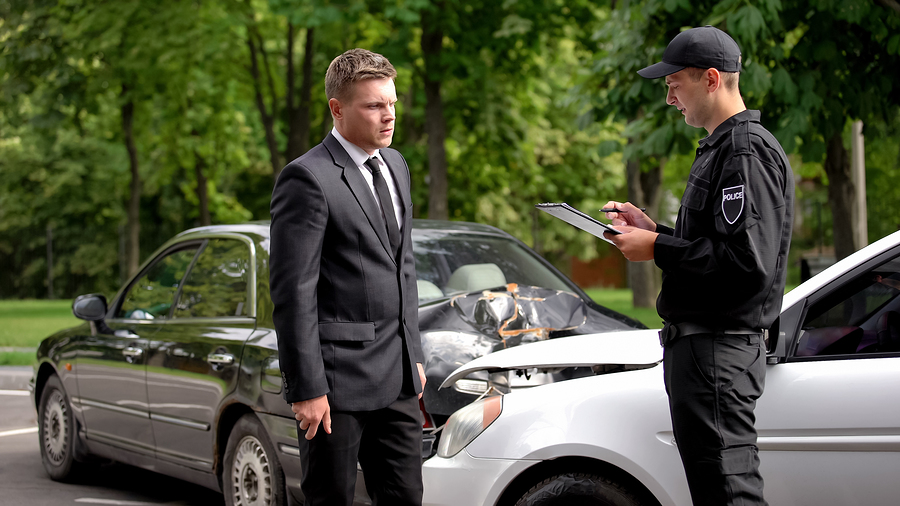Usually, no one walks away from a car accident and says it was no big deal. They are serious matters that have the potential to cause severe injuries and even death. For these reasons and more, auto accidents are scary, and tend to leave injured victims feeling confused.
If you are in a car collision, whether as a driver, passenger, cyclist, or pedestrian, one of the first steps you can take is also one of the most vital. After getting medical attention for yourself and others involved, be sure to contact law enforcement and make a report at the scene of the accident. In fact, it is required by law in most cases.

Here in Indiana, the law requires individuals to immediately alert the local police department of a car accident in certain cases, including if:
- It results in any form of bodily harm or death.
- It causes over $1,000 in property damage.
- City ordinance requires car accident reporting.
- The insurance company requires car accident reporting.
Personal Injury Claims and Police Reports
Separate from your legal obligation to report a car accident to the nearest police station, it is in your best interest to do so for your own personal injury claim. You should always contact the police and have them come out and do a report as a general rule. There are some cases in which victims do not immediately feel or appear injured initially after an auto accident, but later on, sometimes hours, days, weeks and even months, develop serious symptoms and the injuries sustained during the collision begin manifesting themselves. This is known as an onset of symptoms, and is a common occurrence in car accidents. The amount of time an onset of injuries takes to appear varies from person to person.
Police are specially trained to investigate and evaluate the details of a car accident, and therefore, should accurately record a report that defines relevant details regarding the collision. A completed police report can protect your rights to recovering compensation in an insurance settlement or personal injury lawsuit for your losses by documenting evidence of the facts surrounding your case. Such reports usually provide a large amount of valuable information, such as:
- Time, Date, and Location
- Contact Information for All Parties Involved
- Insurance Information for All Parties Involved
- Statements from All Parties Involved
- Witness Statements and Contact Information
- Description of Injuries Reported at the Scene
- The Officer’s Personal Account and Opinion of the Accident
- A Diagram of the Accident Scene
- Description of Road and Weather Conditions
- Description of Vehicle and Property Damages
- Pictures of Injuries, Damages, and Scene Surroundings
- Description of Tickets Issued at the Scene By the Officer
- And More
Because investigating police officers usually do not know the drivers involved, they are usually seen as unbiased witnesses to a car accident, and therefore, have no stake in the outcome of a personal injury lawsuit or insurance claim, their reports of an accident are highly valuable and persuasive forms of evidence in a case. Police can be, and are often, used as witnesses in car accident injury cases. Contact a licensed Central Indiana car accident lawyer for help navigating your claim on a course toward a full and fair financial recovery.
Who to Trust With Your Indiana Car Accident Claim
Contact the esteemed law office of Craven, Hoover, and Blazek P.C. at 317-881-2700 for help making a car accident injury claim in Indianapolis, Indiana. Seasoned personal injury attorneys, Daniel Craven, Ralph Hoover, and Keith Blazek, specialize in car accident claims, and are well-versed in Indiana personal injury law. We offer free initial consultations, we represent clients all over the State of Indiana and never charge lawyer fees unless we win your case. Schedule an appointment, and get started as soon as today.

